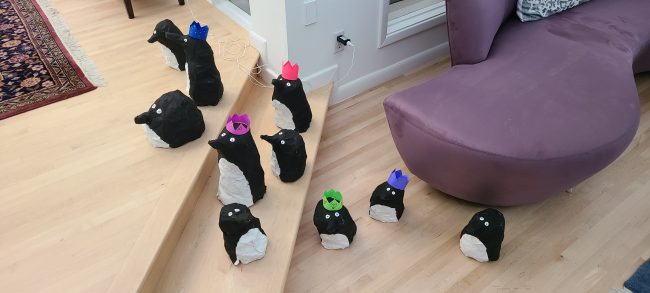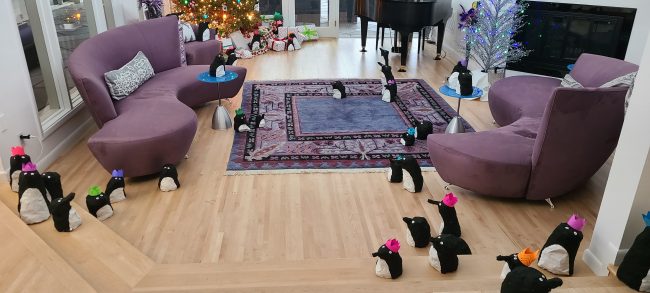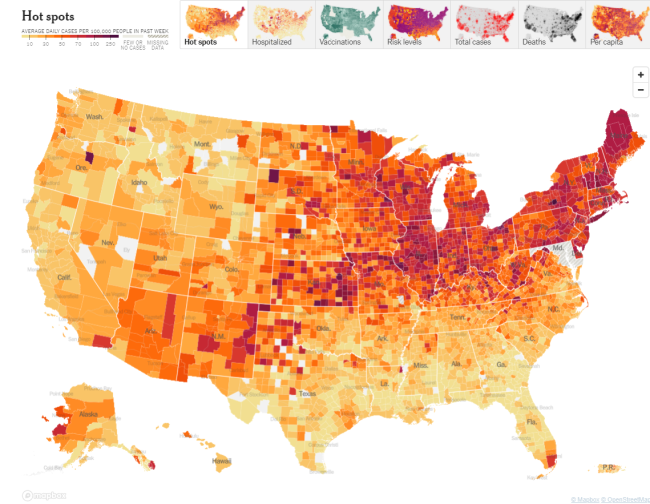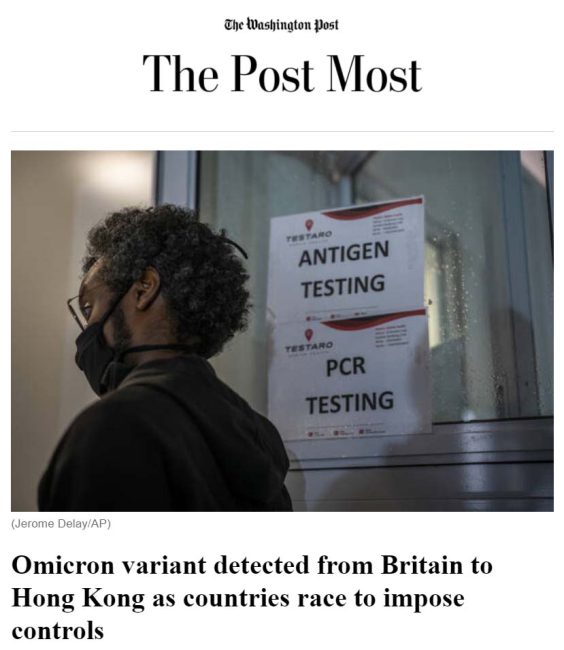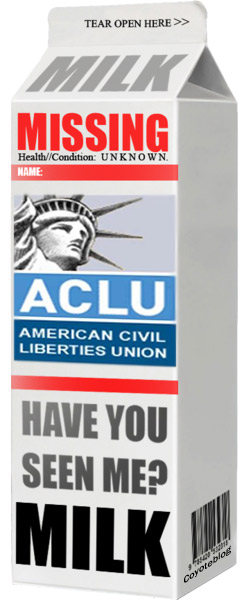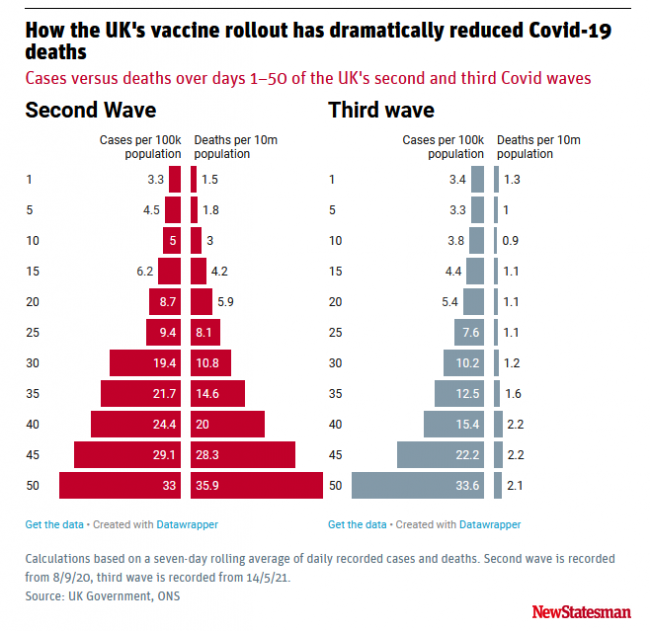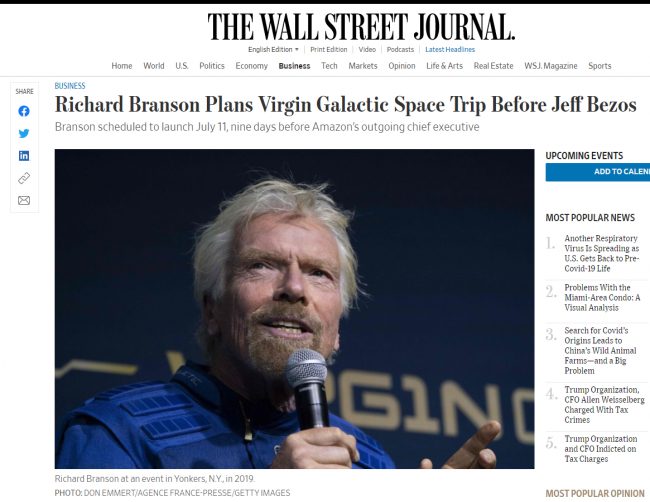When I argue with folks about the irrationality of certain COVID NPI mandates, eg masks and lockdowns, their ultimate argument when their backs are up against the wall is this: the government and/or the "experts" would not have mandated these interventions if they did not make sense. The purpose of this and several following posts is to explain exactly why they might, or more particularly, why certain government mandates might make sense for government officials even when they make sense for no one else.
Briefly, the case against masks
There are people I talk to that assume that the entire history of science consists of a march towards more and more certainly that public masking is essential to stopping respiratory disease spread and that the only people who oppose this NPI are doing so because Donald Trump or the Baptist Church told us to oppose them. But there are actually really good reasons to be skeptical of masks as a mandated NPI for this respiratory disease:
- The body of public health research prior to 2020, on balance, held that public masking (and large scale lockdowns, btw) were not effective and generally not recommended (at least once the outbreak is past a very small group). A good roundup of the studies is here.
- People usually respond to this by saying, well, you wouldn't want your surgeon to operate on you without a mask. Of course, this use case comparison is absurd, since standing next to someone in line at Walmart for 60 seconds is not really anything like hovering over someone's open incision for 3 hours. But it turns out that the scientific support for masks even in surgery to reduce post-op infection is surprisingly equivocal.
- The weave of your mask looks to a COVID virus approximately what a chain link fence looks like to a mosquito. It is not stopping the virus itself. And this is even before discussing the total lack of sealing against the face I see on pretty much every mask. And the fact that many people are reusing the same mask for days.
- The argument is thus made that the mask is stopping saliva droplets. But we have known pretty much since last March that droplets don't spread the disease. Droplets end up on the floor, not floating around for hours. The disease is spread best by aerosols, and masks are only marginally effective at blocking these aerosols
- Everything I have said above is EXACTLY what the CDC has said for years. Here is their info-graphic, still up on their web site. (Here is a copy I have archived in case they ever take it down: understanddifferenceinfographic-508 )
- A case can be made that masks can make spread worse. Imagine being on a plane for 4 hours and you have COVID. Before you ever even get on the plane, you mask is saturated with COVID virus and moisture. You then spend the entire flight blowing COVID-laden aerosols out through the mask like bubbles from a bubble wand.
Incentives of Government Agencies
But within weeks of the start of the pandemic in 2020, government agencies like the CDC threw out all this history and decided to mandate masks. Masks were mandated for people outdoors, even when we knew from the start that transmission risks outdoors were nil. Officials are still mandating masks for children, who have lower death rates from COVID than the flu and despite a lot of clear research about the importance of facial expressions in childhood development and socialization. Officials are even starting to mandate masks for the vaccinated who, if they are not effectively immune from the disease, are nearly perfectly immune to hospitalization and death from the disease. So why?
One needs to remember that the officials of government agencies like the CDC are not active scientists, they are government bureaucrats. They may have had a degree in science at one time and still receive some scientific journals, but so do I. Dr. Fauci has seen about the same number of patients over the last 40 years as Dr. Biden. These are government officials that think like government officials and have the incentives of government officials.
I will take the CDC as an example but the following could apply to any related agency. Remember that the CDC has been around for decades, consuming billions of dollars of years of tax money. And as far as the average American is concerned, the CDC has never done much (at least visibly) as we never have had any sort of public health emergency when the CDC had to roll into action.
If you think this unfair, consider that the CDC itself has recognized this problem. For years they have been trying to expand their mandate to things like gun control and racism, trying to argue that these constitute public health emergencies and thus require their active participation. The CDC has for years been actively looking for a publicly-visible role (as opposed to research coordination and planning and preparation and such) that would increase their recognition, prestige, and budget.
So that is the backdrop. And boom - finally! - there is a public health emergency where they can roll into action. They see this new and potentially scary respiratory virus, they check their plans on the shelf, and those plans basically say -- there is nothing much to be done, at least in the near term. Ugh! How are we going to justify our existence? Tellingly, by the way, these agencies and folks like Fauci did follow a lot of the prior science in the opening weeks -- for example they discouraged mask wearing. Later Fauci justified his flip flop by claiming he meant the statement as a way to protect mask supply for health care workers, but I actually think that was a lie. His initial statements on masks were correct, but government agencies decided they did not like the signal of impotence this was sending.
There was actually plenty these agencies should have been doing, but none of those things looked like immediate things to make the public feel safer. Agencies should have been:
- Trying to catalog COVID behavior and characteristics
- Developing tests
- Identifying and testing treatment protocols
- Slashing regulations vis a vis tests and other treatments so they could be approved faster
- Developing a vaccine
If we score these things, #1 was sort of done though with a lot of exaggerated messaging (ie they communicated a lot of stuff that was mostly BS, like long covid or heart risk to young athletes). #2 the CDC and FDA totally screwed up. #3 barely happened, with promising treatments politicized and ignored. #4 totally did not happen, no one even tried. #5 went fabulously, but was an executive project met with mostly skepticism from agencies like the CDC.
Instead, the CDC and other agencies decided they had to do something that seemed like it was immediately affecting safety, so it reversed both years of research and several weeks of their own messaging and came down hard for masks and lockdowns. And, given the nature of government incentives, they had to stick with it right up to today, because an admission today that these NPI aren't needed risks having all their activity in 2020 questioned.
Incentives for Government Officials
Pretty much all of the above also applies to the incentives of government officials. Our elected officials of both parties, but particularly the Democrats, have been working to have the average American think of them as super-dad. Got a problem? Don't spend too much time trying to solve it yourself because its the government's job to do so. Against this background, the option to do nothing, at least nothing with immediate and dramatic apparent potency, did not exist. We have to do "something."
It might have been possible for some officials to resist this temptation of action for action's sake, except for a second incentive. Once one prominent official requires masks and lockdowns, the media began creating pressure on all other government officials. New York has locked down, why haven't you? Does New York care more than you? We had a cascade, where each official who adopted these NPI added to the pressure on all the others to do so. Further, as this NPI became the standard government intervention, the media began to blame deaths in states with fewer interventions on that state's leaders. Florida had far fewer COVID deaths, particularly given their age demographics, than New York but for the media the NY leaders were angels and the Florida ones were butchers. For a brief time terrible rushed "studies" were created to prove that these interventions were working, generally by the dishonest tactic of cherry-picking a state with NPI mandates that was not in its seasonal disease peak and comparing it to another state without NPI mandates that was in the heart of its seasonal peak. (We are, by the way, starting to see a similar cascade around the most recent delta-driven mandates -- just today a random Arizona county with no uptick in COVID hospitalizations just required indoor masking for the vaccinated).
And then the whole thing got polarized around party affiliation and any last vestige of scientific thinking got thrown to the curb. Take Chloroquine as a possible treatment protocol. Personally, I have not seen much evidence in its favor but early last year we did not know yet one way or another and there were some reasons to think it might be promising. And then Donald Trump mentioned it. After that we had the spectacle of the Michigan Governor banning this treatment absolutely without evidence solely because Trump had touted it on pretty limited evidence. What a freaking mess. In addition to giving us all a really beautiful view of the hypocrisy of politicians, it also added another great lie to the standard list. To "The check is in the mail" and "I will respect you in the morning" is now added "We are following the science."
Incentives for the Public
I won't dwell on this too long, but one thing COVID has made clear to me is that a LOT of people are looking for the world to provide them with drama and meaning. The degree to which many folks (mostly all well-off white professionals and their families) seem to have enthusiastically embraced COVID restrictions and been reluctant to give them up has just been an amazing eye-opener for me.
Incentives for Businesses
Many businesses have been caught up in the politicized virtue-signaling, making a big deal of their support for or opposition to various NPI. But even without this political element, businesses were always going to be conservative and mandate a lot of this stuff if for no reason than to avoid liability. If politicians are worried about blame from the media for deaths if they did not mandate every intervention their neighbors required, just think what a corporation worries about. Any tort lawyer worth their salt can get a jury to blame a customer or employee death, without evidence, on a company that somehow did not follow the CDC advice of the microsecond.
Next Episode
In our next episode, I will discuss the role of poor selection of metrics for crazy government interventions. Spoiler alert -- focusing on cases via positive readings on an overly sensitive test has led to a LOT of the most recent wave of stupidity.
